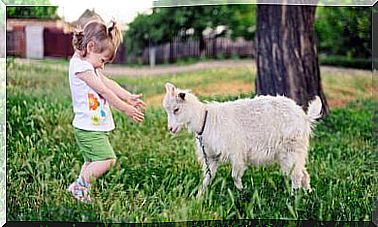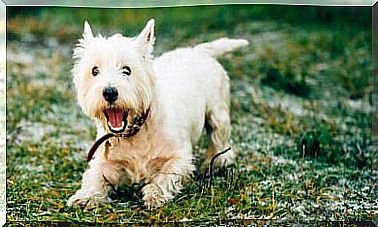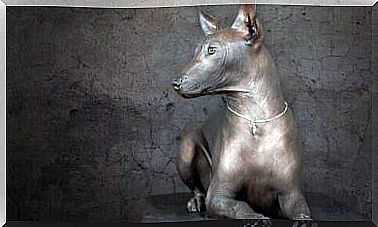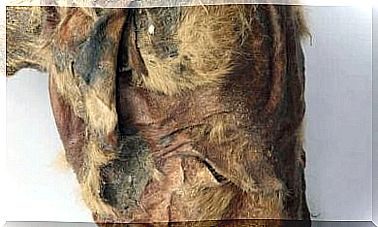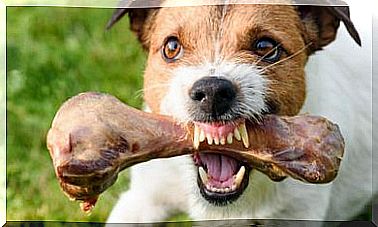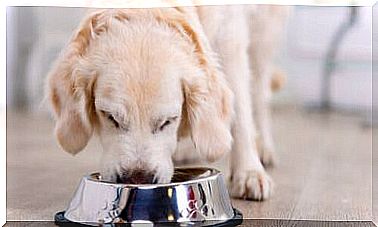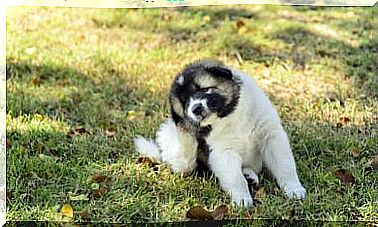Symptoms To Detect Constipation In Dogs
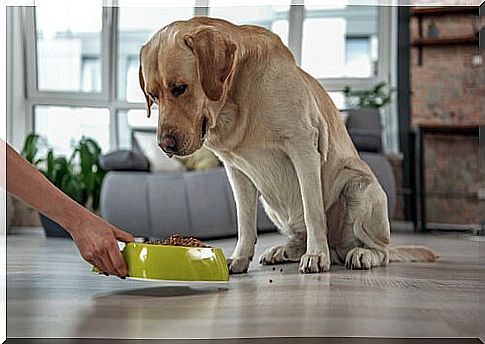
The most obvious symptom of constipation in dogs is the inability or difficulty to defecate. However, this disorder also often causes changes in the smell or texture of stools, in addition to changes in habitual behavior.
Therefore, it ‘s important to watch your best friend’s bowel movements daily and be alert to any sudden behavior problems. Below, we’ll explain further what are the symptoms and possible causes of constipation in dogs.
Main symptoms of constipation in dogs
There are some signs that our dog is constipated:
- Defecate or try to defecate outside of the usual places (for example, defecate at home when you are used to defecating outside).
- Difficulty in defecating (the dog is crouching and straining for a long time, but cannot eliminate the feces).
- Swelling, tenderness and abdominal pain.
- Crying, complaining and showing signs of pain when trying to poop.
- Weight loss and appetite.
- Vomiting.
- Small, dry, hard and dark stools.
- Presence of blood or mucus in the stool.
- Behavior changes: irritability, excessive tiredness, depression, lethargy, aggressiveness, etc.
Possible Causes of Constipation in Dogs

Constipation in dogs can have different causes, depending on their lifestyle and body. Therefore, if we suspect that our dog may be constipated, we should quickly take him to the vet.
At the veterinary clinic, the professional can check the health status, identify specific causes and recommend a treatment that suits your best friend’s needs.
To help you better understand constipation in dogs, we’ve summarized its most common causes below.
- Low Fiber Diet: A deficient or very dry intake of fiber is one of the main causes of constipation in puppies. Therefore, the introduction of fresh food, as well as the adoption of a homemade and moist diet, is effective in improving the intestinal transit of dogs.
- Poor hydration: Dogs that drink little water are more likely to suffer from constipation. Lack of hydration can also cause other health problems, such as dehydration, urinary problems and kidney failure. It is essential to keep our dog well hydrated throughout the year and especially on the hottest days. He should always have fresh water at his disposal.
- Stress: Stress is also among the most frequent causes of constipation in our dog. There are several factors that can cause stress in dogs, such as low physical or mental stimulation, moving house, unbalanced nutrition, a negative environment, etc.
- Ingestion of foreign bodies: If the dog accidentally swallows a toy, object or other foreign body, this element can clog the digestive tract and impede proper intestinal transit. To avoid this, it is important not to offer toys or accessories with small ornaments, fabrics or loose strings, for example.
- Pathological causes: some diseases, metabolic disorders and inflammation of the gastrointestinal tract can cause numerous digestive problems in dogs. In addition, some neurological problems are also often associated with constipation.
Some Home Remedies for Constipation in Dogs
When you notice any symptoms mentioned above in your dog, remember to take him to the vet quickly. Although there are many natural remedies to fight constipation in dogs, it is essential to confirm the diagnosis with a trained professional.
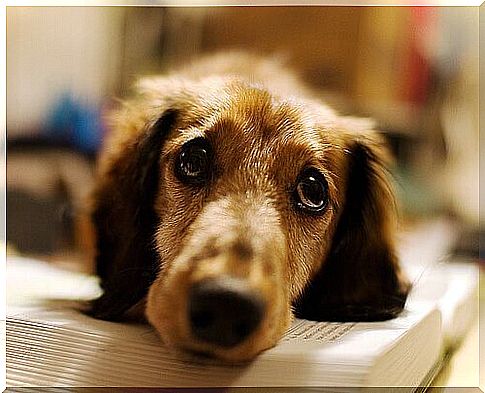
After checking your best friend’s health status, we recommend that you include some fresh, high-fiber foods in your diet. The following foods can help improve intestinal transit and prevent constipation in the dog:
- Pumpkin baked.
- Grated or cooked carrots.
- Spinach and lettuce (always cut very small to prevent the dog from choking).
- Oat.
- Brown rice.
- Probiotics: kefir, natural yogurt without sugar and lactose or natural supplements.
The importance of hydration
It will also be essential to boost our pets’ hydration to prevent constipation and other damage to their bodies.
In addition to leaving fresh, clean water at your disposal throughout the day, we can also prepare moist food and refreshing recipes such as homemade ice cream for dogs.
With these basic guidelines, it is possible to treat and prevent constipation in our dog naturally. However, always remember the importance of veterinary care to establish a treatment that suits your needs.
For all that, in the face of any abnormality in the stool or changes in your dog’s behavior, we recommend that you take him quickly to a veterinary clinic.
